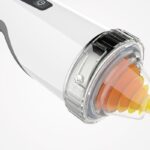A hernia can happen to anyone without prior warning, just like any other disease. But for an effective hernia treatment, it is necessary for everyone to stay aware of all the related problems and the symptoms that come with them. Now that we’re discussing hernia, there are quite a number of variations of the same. But here, we would discuss the abdominal hernia, which happens to be one of the most common ones among patients around the world.
Everything about Abdominal hernia
An abdominal hernia happens when a specific organ or any other piece of tissue protrudes through the weakened space in one of the muscle walls that encloses the abdominal cavity. A sac bulges through the weak area, which might consist of a piece of intestine or a fatty lining of the omentum. Now, this scenario is popularly seen when the hernia happens in your groin or abdominal wall. Now, in case the hernia happens in the diaphragm area, the muscle separating the chest from the abdomen, some specific parts of the stomach might get involved.
Few Facts about Hernia
You probably already know that our abdominal wall is constituted of layers comprising of several muscles and tissues. Some weak spots can develop in these layers, and they might lead the abdominal cavity to herniate or protrude. Here are some of the most common abdominal hernias:
- The groin (inguinal hernia),
- The diaphragm (hiatal hernia), and
- The belly button (umbilical hernia).
Hernias might be present at birth, which is termed as a congenital hernia. However, in most cases, the hernia might develop at any time during adulthood.
Risk Factors For Hernia
Increased intra-abdominal pressure may lead to the weakening of a section of the abdominal wall. Now, the weakening of the wall can either happen acutely or gradually over time. Some risk factors are mentioned below:
- Chronic cough
- Chronic constipation
- Recurrent vomiting
- Ascites: It is the abnormal collection of fluid inside the abdominal cavity
- Peritoneal dialysis
- Obesity
- Abdominal masses
- Pregnancy
- Repeatedly movement or lifting heavy objects
- Abdominal surgeries might often cause a risk for incisional hernias
- Diagnosis and treatment of hernia
In most cases, the first people to diagnose and treat a hernia are the primary care providers. In the case of a Hiatal hernia, extensive care is needed. Generally, in these cases, the primary goal is to control the symptoms of GERD. Occasionally, a gastroenterologist might get involved to assess the severity of GERD. Some Hiatal hernias require surgery. In that matter, it is the general surgeon or thoracic surgeon who performs the operation. However, that depends completely upon the location of the hernia and its size.
In the case of an abdominal hernia, the diagnosis is carried out by the primary care providers. However, for surgery, one has to rely on a general surgeon.
On occasions when the hernia becomes incarcerated (trapped), the patient needs to visit the emergency department. There, the doctor makes the diagnosis, and often, he might push the hernia back into its place. In case the hernia is pushed back, there remains an option of being referred to a general surgeon as an outpatient. You must not let your hernia grow, under any condition. Not checking with your physician might lead the hernia to grow into a further complicated one, which might even become life-threatening.
How Is An Abdominal Hernia Diagnosed?
In cases of inguinal hernia, most patients might feel a lump around their groin area, accompanied by a pain and burning sensation. Physical examination is the best way to confirm the diagnosis in this matter. In comparison, Obturator hernias are much more difficult to figure out, and symptoms of recurrent inguinal pain without any obvious findings might require a CT scan. In contrast, umbilical hernias are easy to locate as a bulge is noticed in the belly button.
During the period of a physical examination, doctors might discover that the patient possesses a tender abdomen. Such types of hernias are often tender and firm. An exam is enough in these cases to suspect incarceration or strangulation. In turn, it requires immediate consultation with a qualified surgeon. Doctors often use X-rays or CT scans to confirm the diagnosis of the hernia. However, the entire situation is dependant on the patient’s clinical situation.
Doctors are often able to diagnose Hiatal hernias associated with GERD through the learning of the patient’s medical history. Chest X-ray reports might be able to reveal a section of your stomach within the chest. In case, a concern regarding the complications includes esophageal inflammation, ulcers, or even bleeding; any gastroenterologist is required to perform an endoscopy.











